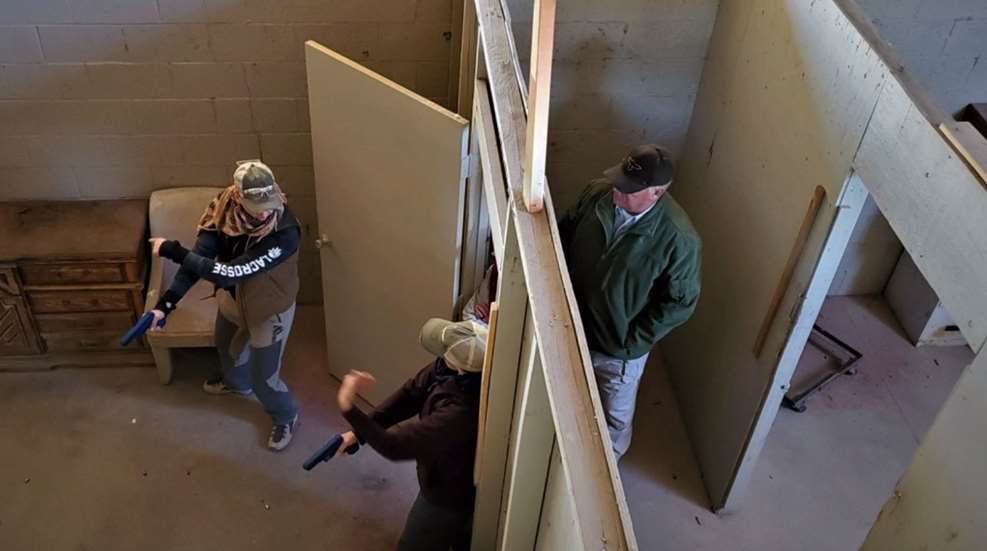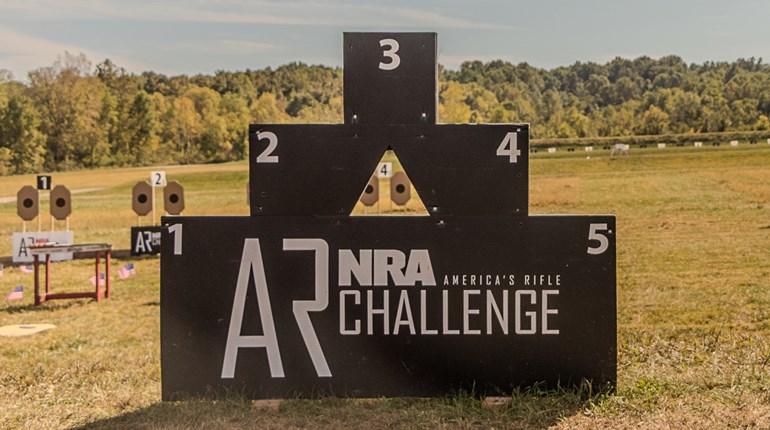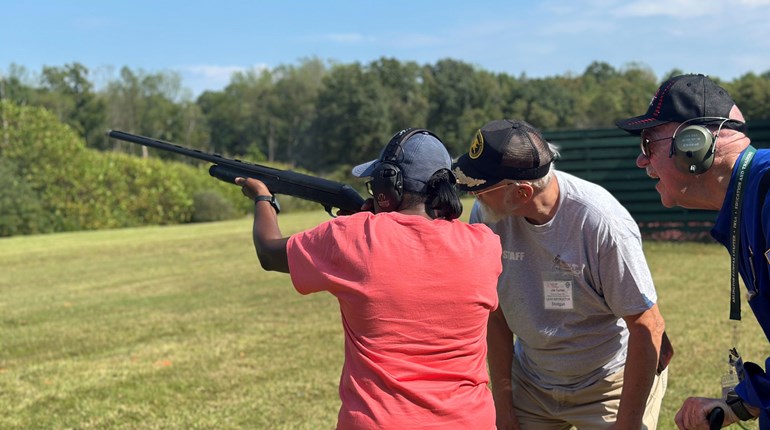
During my ‘team tactics training for two’ at Gunsite Academy in Paulden, Arizona, I learned a lot about handling stress during a self-defense scenario. My partner and I were put in stressful simulations and our objective was to use the skills we had acquired on the range and during training sessions to get ourselves out of danger. This sounded fun to me at first, but then I learned how difficult, scary and realistic it actually was.
We were put into several scenarios, each involving different variables. All of the situations were designed to target a handful of specific skills we had learned. Though, there was one skill that we used every time. In dealing with team tactics, it was very important to communicate with your partner about what is going on, what you are doing and what you need your partner to do. This communication and ability to problem-solve together is paramount in surviving a team tactics scenario. We were trained extensively on what to say and how to work through a problem together. However, when the scenario developed and the chaos ensued, all of that training seemed difficult to access.
The defense cascade is one reason a person’s cognitive functioning can slow under stress. The five steps of a defense cascade include: arousal (muscle tone, heart rate and breathing rate increase), Fight or Flight (an active defense response), Freezing (fight or flight on hold), Tonic immobility (loss of muscle tone, inability to move or speak, shutting down), and finally Quiescent Immobility (a state of rest and healing occurring after the danger). This defense cascade is sometimes described as the “lizard brain” because it is responsible simply for reacting to threats, kind of like animal instincts. (By contrast, our cognitive functioning for complex thought, planning, decision-making, impulse control and self-awareness is referred to as the “wizard brain.”)

With this explosion of activity in the brain, it is difficult to keep focus and force yourself to use your wizard brain to problem solve and communicate your way out of danger. There is no shame in panicking or freezing during a stressful situation, as these are normal reactions within the defense cascade. However, in a complex situation (which most are in the modern world), the lizard brain may not be enough to get you to safety and survival.
I found my heart racing and my muscles aching for action during the training exercises. My brain felt scrambled, and my thinking felt slow. There are two steps that can help you redirect your focus and fight against your lizard brain reactions to allow you to think your way out of trouble. I like to preface both of these steps with a deep breath. The first step is to remember that you are capable of surviving and that you have the resources necessary to deal with threats. The second step is to take inventory of said resources. This can be done in a split second or even while you are physically reacting. It is simply a reminder to your brain that you do not have to rely completely on your lizard brain and instead activates your wizard brain.
Once you’ve overcome your lizard brain reactions, it’s time to connect with your partner. Communication with your partner needs to be clear and concise as they are most likely battling their lizard brain as well. Use consistent, precise and brief phrasing to get the point across. The who, what, when, why, where and how of the situation is all they need to know.
Training on the range, role-playing scenarios and problem solving ways to deal with possible threats are the best ways to prepare yourself for a defensive encounter. I would recommend Gunsite’s methods that include gun-handling, accuracy, speed and mindset training as essential elements to being prepared.
Training in those ways can build confidence and act as proof to yourself that you are capable of defending yourself, even if your lizard brain gets in the way. Arguably your most important lesson will be how to use your wizard brain instead of getting stuck in the defense cascade. The curriculum at Gunsite Academy is designed to do just this. The instructors at Gunsite have “been there, done that” as most of them are military, police, and SWAT. I highly recommend looking for self-defense courses that focus just as much on overcoming mental obstacles as the physical ones.
About the Author: Samantha Mann, MA, is a WV Licensed Psychologist, Licensed Professional Counselor WV, and Nationally Certified Counselor. Raised in West Virginia, Samantha was the youngest of six grandchildren (and the only female) who were raised to love the outdoors and hunting. She has hunted from Texas to Africa, and believes that while Superman gets his power from the sun, her power comes from the outdoors. Samantha lives in southern West Virginia with her supportive husband, who doesn’t mind showing off her trophies to his buddies. She balances her time in the office helping others with time in the outdoors, focusing much of her career on helping children and adults who have been abused, neglected and mistreated.















































